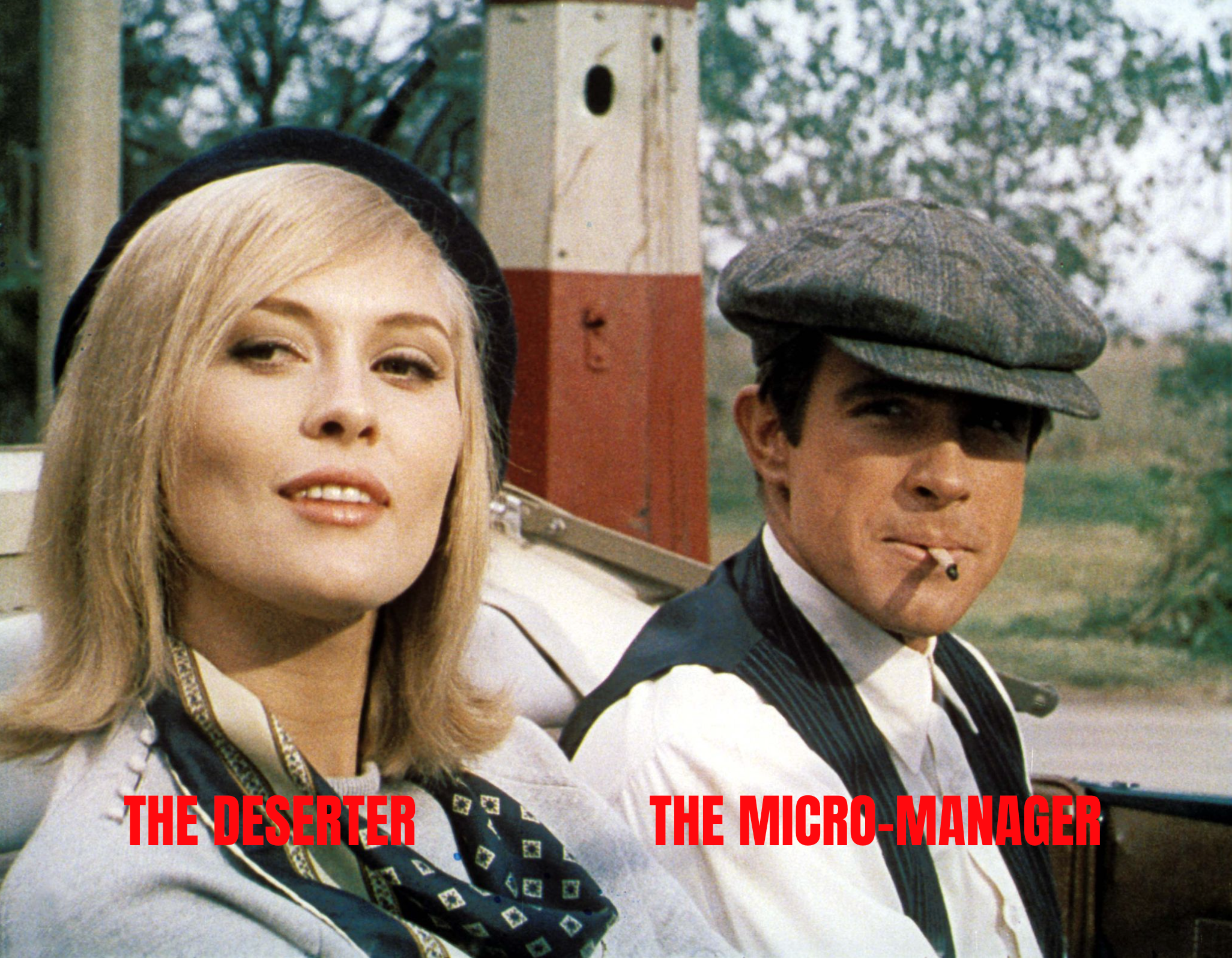
how to be a better manager
Timanni Walker
30/03/2023
In 2022, Timanni Walker wrote about our industry's failure to nurture talent. Now, as a strategy director, she's returning to the topic, looking at what's she learned from her first year as a manager.
“You either die a hero or live long enough to see yourself become the villain” is likely one of the greatest lines delivered in cinematic history and it comes from an unlikely source - The Dark Knight. While that movie came out in 2008, it has stuck with me nearly two decades later. Simply put, even the best intentions can lead you astray. While your vision and plans may be honorable or noble, without diligent action, those same beliefs can cause more harm than good.
A year ago, I wrote a piece spotlighting how the “Sink or Swim'' management culture in advertising submerges careers. At the time I was a senior strategist and still in the early stages of management and naive to the full scope of the business.
Months later, I was promoted to strategy director and directly responsible for managing others. The demands of a director do not compare to the responsibilities of being a senior strategist. If a senior strategist is a musician, a strategy director is a composer.
I suddenly empathised with my time-starved bosses, schlepping from meeting to meeting, and canceling check-ins so they could get a moment to themselves. And if you’re not being trained to handle that transition, which many are not, it can compound the complexity of the relationship even further. It always felt personal and I’ve learned often it's not. It’s a cycle.
No matter your intentions or beliefs, if you don’t become your own dark knight and take matters into your own hands, you will live long enough to see yourself become the villain.
This matters. According to 69% of people, their managers had the greatest impact on their mental health, on par with the impact of their partner. And this was more than the impact of their doctor (51%) or therapist (41%). This is according to a new study by The Workforce Institute at UKG which included 3,400 people across 10 countries.
How do you avoid becoming the villain? Here’s what I have learned about managing thus far.
Management is a choice.
Management training in this industry is the exception not the rule. No matter what agency you work for it’s simply rare that you’ll get the training you need. Like everything else in this job, not knowing how to execute is not an excuse for inaction. Learning as you go is simply the rent you pay for existing in this industry. Decide now if you want to be a good manager because no one else will force you to be one. It’s a hero's journey.
What you protect, you will prioritise.
The first thing you realize as you become a manager is that you have less time to think than you're accustomed to. Time evaporates. Expectations and deadlines shift. Somewhere between a meeting and lunch, if you eat at all, the day slips through your fingers. And if anything gets pushed to next week it will likely be your check-in.
So, block your calendar. Create a recurring hold for managing. I’ve found that 1 hour per week per person is a good starting place. Set two 30 minutes standing meetings per week: Thinking Time and Check-In.
Thinking Time: Use this time to simply reflect. What are your direct report’s goals? What are they working on? Do they have vacation plans? What are they doing well? Where could they be improving?
Check-In: This is meeting time. Where you communicate to your direct report the elements you’ve been thinking about.
Do what you can to honor that standing time. Things will happen and you might not make it everytime. But knowing that it’s coming always helps. Sometimes you don’t need all 30 minutes. But having it there as a fixed thing is a game changer. Once you protect that time, you can really prioritize that relationship.
To manage is to be exposed.
Management exposes all your habits. There in plain view is your process. Your overreliance on gifs and memes, your tendency to use alliteration in every headline, the hours you spend procrast-designing slides - all of it.
We’ve all retreated to convenient shortcuts due to budgetary constraints or quick turnarounds but we don't realize until you manage how often those short hands become your defaults.
When you manage, you surrender the privacy of your process. Like 8th grade algebra class, you’re going to have to “show your work”. Now, others need you to explain how you arrived at your conclusion.
Bad managers hate being exposed.
In my experience, the Bonnie and Clyde of bad managers are micromanagers and deserters. They exist on both ends of the accountability spectrum: one wants to oversee everything you do and the other wants no involvement. Both don’t want to confront the truth of their process.
WANTED: For crimes against management
Micromanagers seek to control your process by trying to model if after theirs. But they don’t take time to consider that their conclusion isn’t the only one. Deserters are often unsure of how they arrive at their conclusions and would rather avoid bringing others in.
In this role, you have to trust your instincts but you can’t rely on them. Because instincts become crutches or biases that keep you taking the same course over and again.
Management is a chance at redemption
When you face the ugly and unstructured habits that shape your method, you become better. You’re on autopilot before you become a manager and managing is your opportunity to course correct. Go back to the foundations. Remove some of those habits you picked over time. It’s a chance to really reflect and learn. Adopt a new tool for your toolkit and share what you learned.
Don’t let shame or fear steal your greatest teaching opportunity. The more you confront your working style, the better you become at your jobs. Helping others refine their skills, helps you refine yours.
Ask before you assume.
The biggest mistake I made at the beginning of this journey was making too many assumptions. People tend to focus on fit. Whether or not you and the person you have interests in common. What matters more than whether you both are fans of basketball, is how that person processes information.
Questions like:
When I'm overwhelmed I tend to…
The best way to explain a new task to me is to…
The best way to give me feedback is to…
Use email for _____, Slack for ______,
So many things are misconstrued because they weren't communicated in a way someone could understand. Manual of Me is a great guide for navigating these conversations. Like your clients, every person is different, you have to tailor your style to the people you are serving. There’s no one size fits all to management.
Explain before you expect.
As a senior strategist, I had a general idea of what strategy director responsibilities were but didn’t know how those responsibilities manifested in the day to day. So many situations, I was merely guessing how to be the most useful. I felt there was an expectation that I “should just know what to do” and it gave me anxiety. So much of the pressure is placed on junior talent to “manage up” without an explanation of what that means.
Examples:
Explain: I oversee a few projects which means that I likely don’t remember where we left off in our conversation. When you email me can you send a 2 sentence recap of what has happened since we last spoke on this issue and the direct action you want me to take?
Know when to redirect.
The best management advice I received came from Kathleen King, SVP of Learning and Talent at Omnicom, “Know when to go from being the most interesting person in the room to the most interested.” If you’ve gotten to this stage of your career where you’re managing others, it’s likely because people trust your ability to execute.
When you manage the most powerful thing you can do in meetings where everyone’s expecting to say something smart, is to use that spotlight to highlight the smart thinking of someone else. Be the most interested person in the room. Interested in what direct report has to say. It really helps to build trust and confidence in someone who is learning.
Ask for feedback.
Use those check-ins to ask for some feedback. What can I do better to serve you? What parts of our conversations have been the most valuable? What would you like me to change? What areas can I grow? It’s so important to have open conversations about how you are doing it.
It’s been a wild, sobering, vulnerable, and rewarding journey. We owe it to ourselves and others to navigate the murky waters of management with bravery and kindness. To make the time to learn from and with the people we’ve been entrusted to grow. Because time will reveal whether we are the hero or villain in someone else’s story.



